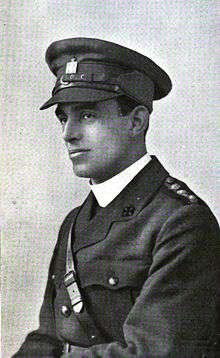Geoffrey Anketell Studdert Kennedy MC (1883–1929) was an English Anglican priest and poet.
Born in Leeds on 27 June 1883, Studdert Kennedy was the seventh of nine children born to Jeanette Anketell and William Studdert Kennedy, vicar of St Mary's, Quarry Hill in Leeds. He was educated at Leeds Grammar School and Trinity College, Dublin, where he gained a degree in classics and divinity in 1904. After a year's training at Ripon Clergy College, he became a curate at St Andrew's Church, Rugby and then, in 1914, the vicar of St. Paul's, Worcester.
On the outbreak of World War I, Studdert Kennedy volunteered as a chaplain to the army on the Western Front. In 1917, he was awarded the Military Cross at Messines Ridge after running into no man's land to help the wounded during an attack on the German frontline.
After the war, Studdert Kennedy was given charge of St Edmund, King and Martyr in Lombard Street, London. Having been converted to Christian socialism and pacifism during the war, he wrote Lies (1919), Democracy and the Dog-Collar (1921), Food for the Fed Up (1921), The Wicket Gate (1923), and The Word and the Work (1925). He moved to work for the Industrial Christian Fellowship, for whom he went on speaking tours of Britain.
He died in Liverpool on 8 March 1929.
Quotes
- Waste of Blood, and waste of Tears
Waste of youth's most precious years,
Waste of ways the saints have trod,
Waste of Glory, waste of God,
War!- from Waste, in More Rough Rhymes of a Padre (1919)
- God gave His children memory
That in life's garden there might be
June roses in December.- from Roses in December, in Songs of Faith and Doubt (1922)[1]
